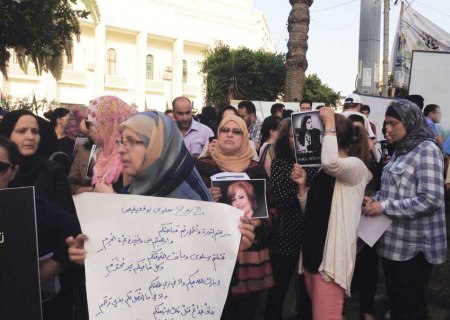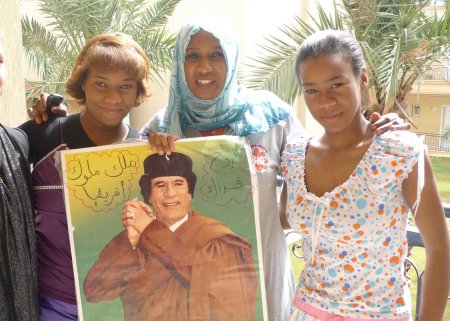Mustafa Fetouri
On June 25 last year, right after she cast her vote for the new Council of Representatives, Salwa Bugaighis was murdered at her home in Benghazi in eastern Libya. She was Libya’s most prominent female lawyer, a member of the former NTC (National Transitional Council) that led the rebel movement in 2011 and a well-known civil activist. In February, Libya was shocked again by news of murder targeting yet another well-known activist in Tripoli: Intissar al-Hasaari and her aunt were killed at a busy road west of Tripoli’s city center.
Those two cases made headlines inside the country, because the victims were well-known public activists. However, many more violent crimes against women go unreported. So far, not a single murder case has been thoroughly investigated, let alone solved and the killers brought to justice.
Since NATO enabled rebels to topple the government of Moammar Gaddafi, women in the new Libya have suffered ironically at the hands of those who claim to have liberated them, most of whom became militias involved in crime. While allegations of mass rape during the 2011 war never were investigated, it is well known that violence against women now is a major issue. Because of social taboos, it is hard for victims to come forward and the country’s successive governments have made no serious efforts to look into the matter.
In terms of legislation, the biggest setback has probably been the annulment of Gaddafi-era legislation virtually banning polygamy. On the eve of Gaddafi’s murder in October 2011, NTC Chairman Mustafa Abdul Jalil called for polygamy to be legalized, claiming that banning it ran counter to Sharia. In 2013, the law was struck down and polygamy became legal again.
During Gaddafi’s rule, it was almost impossible for a man to marry a second wife. While polygamy was not banned outright, it was made very difficult thanks to a clever legal maneuver. The law required any man wishing to marry a second wife to obtain the consent of his first wife. Such consent is only legal if obtained through a court of law: A judge would ask the first wife, in private, whether she permits her husband to marry a second time. Should a man marry a second wife without the written consent of his first wife, the marriage contract is illegal.
Although official figures are unavailable, it is thought that this law played a significant role in making polygamy almost obsolete.
The NTC was also responsible for another piece of legislation that disadvantaged women when, in 2012, it adopted the election law allocating only 10 percent of the seats to women in the national elections, while leaving it to political parties how to fill seats at the local level. In a male-dominated society, women will have little say at the local level if the law is not on their side, since all political parties are led by men, making women’s chances of getting nominated in any party’s list slim. In fact, and in spite of its role in the revolution, the NTC itself only had two female members, one being the murdered Bugaighis. The other is Salwa el-Deghali.
During the Gaddafi era, women made steady progress in gaining access to education and work. It became very common to see female lawyers, judges, civilian pilots, and university professors.
One of the greatest achievements for women under Gaddafi’s rule was unlimited access to free education at all levels. Realizing the importance of education in modernizing society, the government made it compulsory for parents to keep their children of both sexes in school until the age of nine. This is now reflected in Libyan women being highly educated, as compared to the average in the region. In Libya today, a majority of female students intend to attend college and an almost equal number of women (32 percent) as men (33 percent) hold university degrees, while almost 77 percent of female high school graduates intend to pursue higher degrees both inside Libya and abroad.
Women’s participation in civic action in the new Libya is as low as 20 percent. One reason could well be the lack of security in the country after the NATO intervention in 2011 that plunged Libya into the chaos that has prevailed ever since. Similarly, while women are interested in politics and have voted in large numbers, with nearly 66 percent voting in 2012, they participated less in the elections in June 2014. One explanation for this regression could be disappointment and disillusionment in the previous elections, which failed to stabilize the country or end the violence.
While equality in the workplace was inching forward, it stalled after the civil war of 2011 and the emergence of various Islamist groups such as Ansar al-Sharia. These organizations are less inclined toward gender equality, while some of them do not like to see women working outside the home at all.
Yet, one of the problems women in Libya suffer remains both cultural and social. Since society is tribally based and male dominated, the common view about women assuming a leading role in society tends to be negative. After years of women serving in the military, police force, education and the judiciary, such views were changing — however slowly, and mainly in big cities — whereas in rural areas, the traditional negative perception of women always remained strong.


Keine Kommentare:
Kommentar veröffentlichen